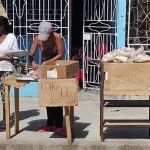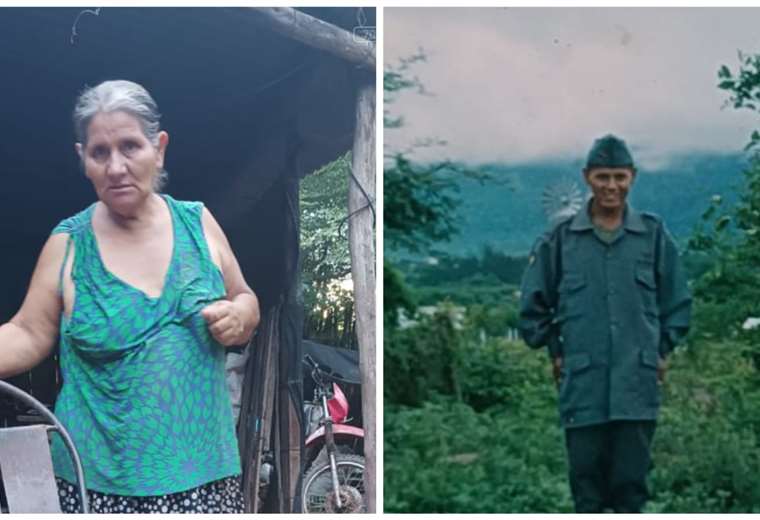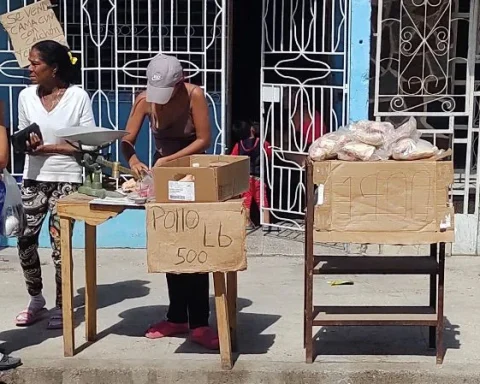May 20, 2024, 7:37 AM
May 20, 2024, 7:37 AM
On May 5, Amalia Gallardo, of the Bolivian National Cinematheque.
In that opportunity, the film “Irregular” was received with applause at the beginning and end of the screening, sponsored by the Delegation of the European Union and the Italian Embassy in Bolivia.
The Embassador Fabio Messineo pHe praised the film as an example of collaboration between Italy and Bolivia, valuing the courage and the innovative formal aspects of this totally independent production.
Likewise, he announced the Embassy’s upcoming activities: among others, an exhibition by a Bolivian artist.
The protagonist of the film, Fátima Lazarte, took the opportunity to remember the writer and Italian director Pier Paolo Pasolini, one of the last elegant and subversive intellectuals, with a truly counter-current position, born on May 5, 1922.
This Monday, May 20, at 7:00 p.m., the film “Irregular”, created by Fátima Lazarte and Fabrizio Catalano, It will be presented in the Theater/Auditorium of the Spanish Cooperation Training Center, in the capital of Santa Cruz.
Almost immediately, “Irregular” will be presented in Rome, this time in a demonstration organized by the Embassy of the Plurinational State of Bolivia before the Holy See, in its own facilities at Via di Porta Angelica 15, on May 25 at 7:00 p.m.
“Irregular” is the fascinating search for a feminine worldor, where reality and fantasy coexist and intersect: A new Venus with olive skin, an angular profile, with a body imbued with vitality and shaped by suffering, is about to be born in the great salt desert.
A goddess – and an everyday creature – that, in a succession of visions and stolen scenes, references to figurative arts and literature, interviews, dances, hallucinations, metaphors and symbols will take us on a fabulous, hypnotic, psychedelic and at the same time extremely concrete journey trying to reach our most essential essence. authentic and hidden.
With its variety of landscapes and climates, with its highlands where the light frays and purifies, with its iridescent lagoons and its enigmatic vestiges of lost civilizations, with its emerald jungles and its overwhelming and arid expanses, with its mix of colonial architecture and its garish skyscrapers, with the sharp faces of its inhabitants and their musically chewed murmurs, with their revolutionary dreams and their memories of ancient traditions, Bolivia is the setting and emblem of this film, where a kind of mythical character, born in the great salt desert, meets women from very different origins, who open their hearts and minds to him.
About this work, the director, Fabrizio Catalano, noted: “I come from an old, decayed continent, which uses its glorious past and technology transformed into whims to deny its agony: sinking into this film has been for me an act of courage and hope, a way of discovering and inventing other worlds. And also, in a totally independent production, a way of matching form and content. Of using visions, symbols and sensual dreams to criticize the drifts of human societies and flirt with utopia,” she shared.
For her part, the protagonist, Fátima Lazarte, said that all the work that went into doing “Irregular” It was an adventure that brought him great learning, it was also a great challenge to be able to capture in an audiovisual product the concerns and research, both visual and thematic, that he had developed, both separately and together with the director, “proposing an ethical, aesthetic work and politician, who dreams and imagines another possible world”.
This work has had the contribution of valuable collaborators, such as maestro Fabio Lombardi, composer of the music that accompanies the viewer, and who is also the director of the montage.
The body painting corresponds to the artist Patricio Chamorro; utopian fantasies were the creation of Yhomara Muñoz Díaz; The digital effects that intervene in the interviews, taking the viewer through a visual psychedelia, belong to Mariano Equizzi.
The color correction was carried out by the renowned professional Fabrizio Profeta; and the butterfly suit was made by designer Cristina Mercedes Sirpa.
Likewise, interviews with different women who express their subjectivity are interwoven, enriching the vision with their diverse points of view.
“Irregular” was produced by the Ch’aska Art and Culture Association, which also has a space that in recent months published works linked to art, which build bridges between Italian and Bolivian culture, among other contributions.


















